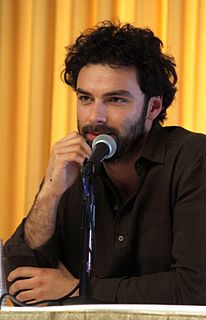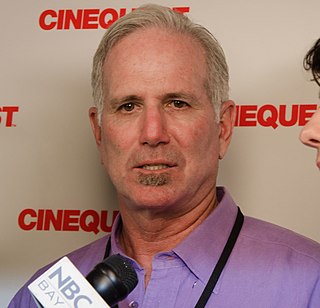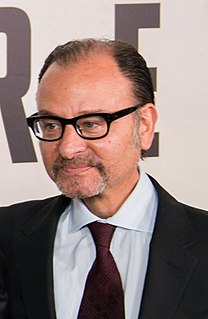A Quote by Dominic Monaghan
I can easily say "no" to a project if the script isn't great, but when the script is good, then I start asking the other questions. Who's going to direct it? Who's the creator? Who are the actors? When are we shooting? Where is it shooting? All that kind of stuff.
Related Quotes
When you try to be true to the script, changes occur. A script is there to show us a certain direction. But when you actually have the actors in and you start shooting the movie, you have the actor say a line and it doesn't sound right so you change it and make it different. It's the script that gives birth to these changes and the more you try to stay true to the script, the more that happens.
Sometimes during a show or a film, while you're shooting it, you'll think, "This is great, it's going to be fantastic, the script is incredible, and the actors are great, and everything is working out brilliantly." And then you see it, and you kind of go, "Oh god, it's not as good as I thought it was," and it doesn't get an audience to watch it. It only does a couple of festivals and then dies and whatever.
You never have any idea where your movie's going to go when you're shooting - you're in this little bubble. Everything you care about is getting the next step right: getting the script right, finding the right actors, shooting it. Then you spend half a year in a dark room editing your film, and you don't talk to anybody.
I don't think fast enough on my feet in terms of the writing to change the script too much when I'm shooting it. I like to have it set and done and know that I feel good about it and I might add a few lines here and there while we're shooting, if I think of a new joke, I might toss it in, but for the most part, I try to stick to the written script and have all the latitude exist within that.
Die Hard With A Vengeance shooting was a great time, because we had an interesting script. The first script was called Simon Says, and something was going on, because some days we'd get to work, but we wouldn't actually have dialogue. We would go to Bruce's Willis trailer, and they'd say, "Okay, you have to go from 168th Street to 97th Street today. We're going to do it in the cab, and Sam, you say this. Bruce, what do you want to say?" And that's how Bruce's "hey, Zeus!" thing came up.
There were a couple of times, leading up to shooting [Ordinary World], where I was like, "Oh, my god, what did I get myself into? Hopefully, I don't ruin this guy's precious script." And then, after a couple of days of shooting, I started getting in the groove of it and it was really fun. I love being a rookie at stuff. It makes it feel vital. I love doing things I've never done before, and I love making stuff.
All directors make films in individual ways. But the classical kind of view of filmmaking is that you have a script, and it's very linear. There's a script, then you're going to shoot the script ,and then you cut that, and then that's the end of the film. And that's never really been how I've seen it.


































